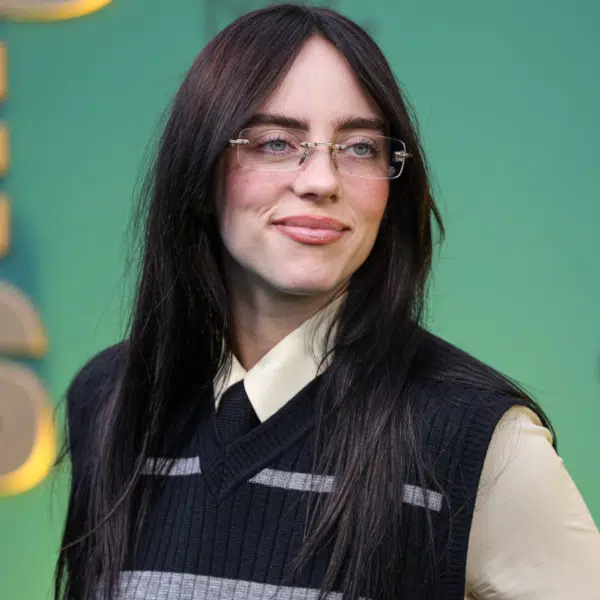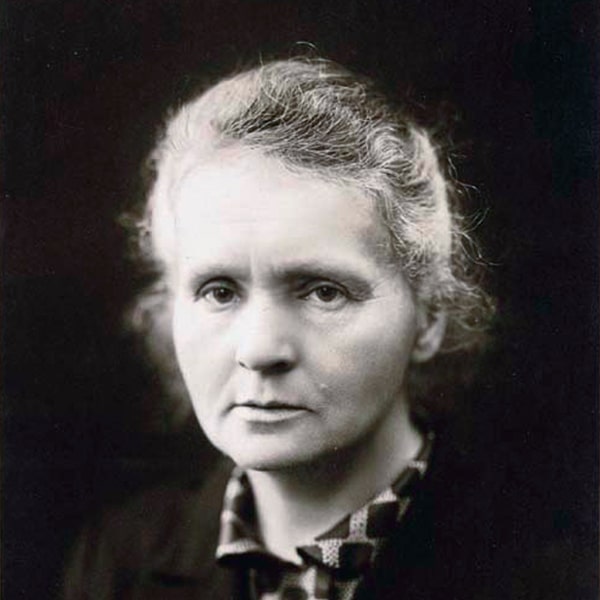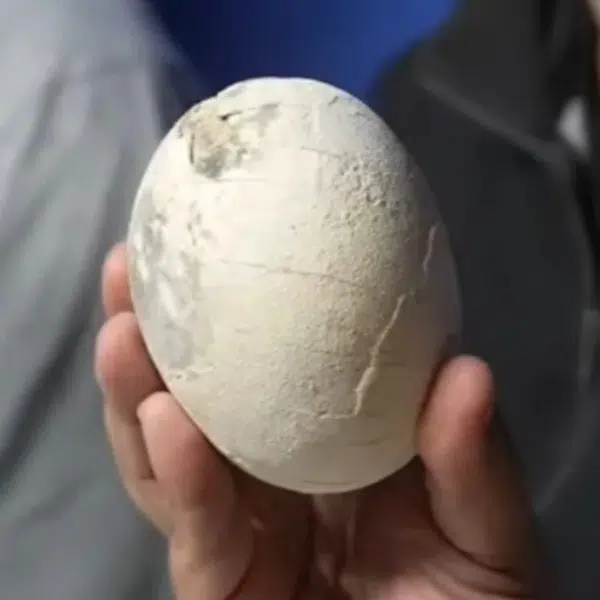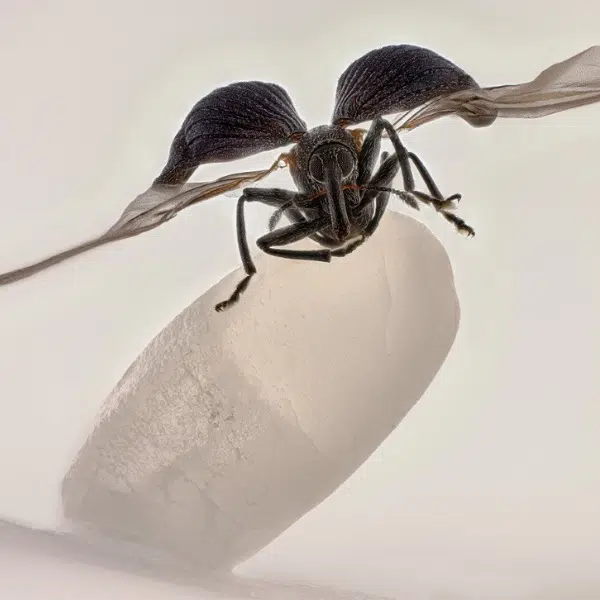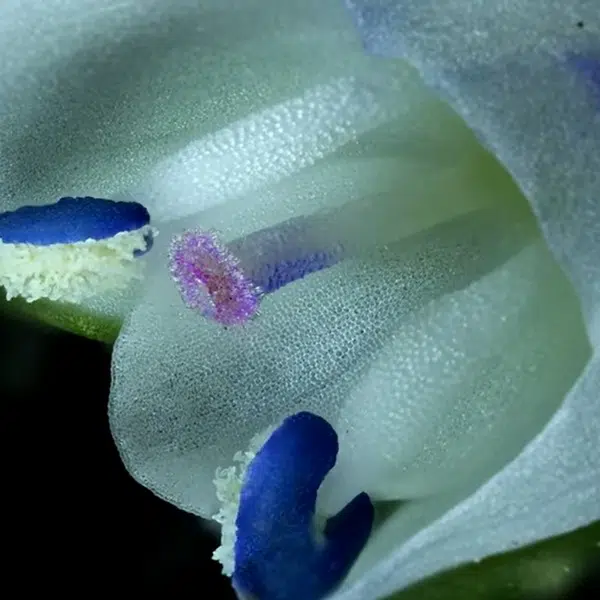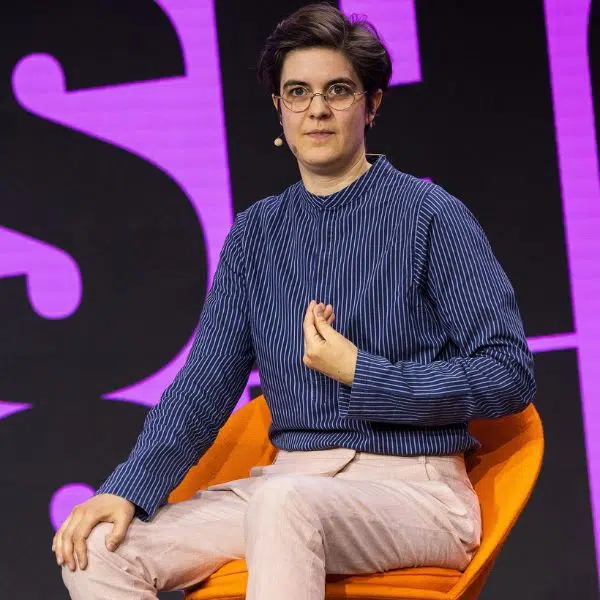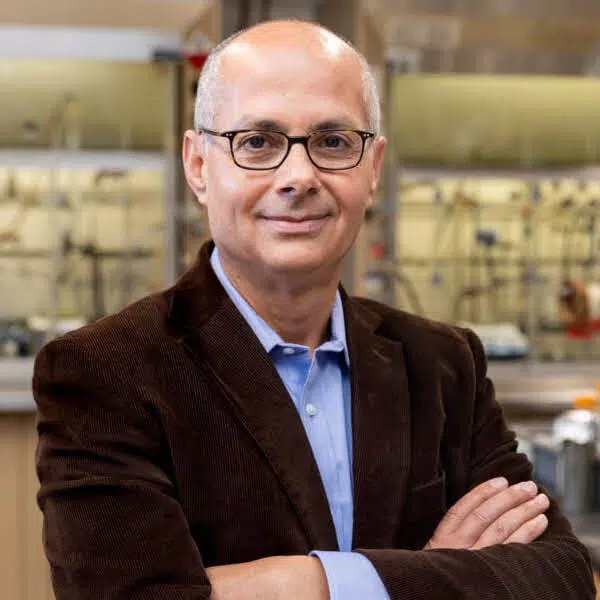
Photo: Dave Guttridge via Wikimedia Commons (CC BY-SA 4.0)
In 2018, Jessica Wade wrote the first of thousands of Wikipedia articles uplifting female scientists. This initial entry was inspired by her meeting climate researcher Kim Cobb at a conference. Impressed by her work, Wade decided to learn more about her and look up the scientist on Wikipedia.
“I thought Cobb was so incredible,” Wade said in a 2019 interview with AAAS. “I went to check if she had a [Wikipedia] page, and she didn’t. I was just horrified.” That’s when Wade decided to write one for her herself.
Since then, the British physicist has dedicated herself to increasing diversity and accessibility within the STEM community, with a special emphasis on women of all backgrounds. Among her many advocacy initiatives are, of course, her Wikipedia biographies, which she began writing in her 20s. In less than a decade, she has created more than 2,000 articles for the online encyclopedia, focusing on women and underrepresented scientists who have been overlooked or forgotten by history.
“Despite women making up 51% of the global population, only about 19% of biographies on English language Wikipedia are about women,” Wade mentioned in a 2024 podcast recording with Scientific American. “And that’s not just women scientists. That’s women in all professional areas. That’s anyone that the Internet has deemed notable.”
Across her research, Wade has rediscovered countless pioneers in their fields, ranging from Dawn Shaughnessy, whose team of chemists discovered five of the super-heavy elements in the Periodic Table; Roma Agrawal, who led the engineers responsible for completing the Shard, which stands as Western Europe’s tallest tower; and Gladys West, a Black woman born in the 1930s whose mathematical contributions led to later breakthroughs in GPS technology. Wade’s efforts have paid off: she’s given a TEDx Talk on diversity in STEM, and has amassed such prestigious prizes as the Rosalind Franklin Award. She has even been recognized by Wikipedia’s founder, Jimmy Wales.
But, even with a mission as impactful as hers, Wade has not been without her opponents. Wade’s biography on Clarice Phelps, a Black nuclear chemist who was part of a team that discovered a new element in the Periodic Table, faced scrutiny and even deletion from other Wikipedia editors and contributors. In order to keep the entry online, Wade had to put up a fight—and eventually she won.
“The lack of diversity in science is more than just unfair—it impacts the science we do and the systems we create,” Wade wrote in a 2019 article for The Independent.
Women only make up 26% of the STEM workforce, according to the American Association of University Women (AAUW). Another AAUW study, from 2022, found that Black and Hispanic women only account for 2% of engineers, while teachers and parents often underestimate girls’ math abilities throughout early education.
“People assume girls don’t choose science because they’re not inspired. Girls are already interested,” Wade said in an interview with TODAY. “Ultimately, we don’t only need to increase the number of girls choosing science, we need to increase the proportion of women who stay in science.”
Meet Jess Wade, a British physicist who couldn’t help but notice a lack of representation or acknowledgement of women in STEM.
View this post on Instagram
“Despite women making up 51% of the global population, only about 19% of biographies on English language Wikipedia are about women.”
View this post on Instagram
In the past eight years, she has fought for diversity in STEM by writing more than 2,000 Wikipedia biographies dedicated to females and other underrepresented scientists.
Jessica Wade: Website | Instagram
Sources: This is why I’ve written 500 biographies of female scientists on Wikipedia; The STEM Gap; This 33-year-old made more than 1,000 Wikipedia bios for unknown women scientists; Jessica Wade: Physicist and Author of Hundreds of Wikipedia Entries About Women Scientists; This Researcher Is on a Crusade to Correct Wikipedia’s Gender Imbalance
Related Articles:
Scientists Have Developed a Gel That Boosts Coral Reef Settlement by 20 Times
Scientists Generate Renewable Energy With Falling Water in New Study
Doctors Have Successfully Treated Huntington’s Disease for the First Time











































































